Recall that the late-2021 incoming premier brief from top bureaucrats within the NSW Department of Premier and Cabinet told Dominic Perrottet that Australia needed an “explosive” surge of 2 million migrants to boost the economy.
Perrottet was told that a “time-limited” migration surge could include a “doubling” of pre-COVID immigration levels for the next five years and “unashamedly” focusing on “the skilled migration we need to develop key industry sectors”.
Premier Perrottet then proceeded to lobby the federal government for a big immigration increase, which it happily obliged with record numbers:
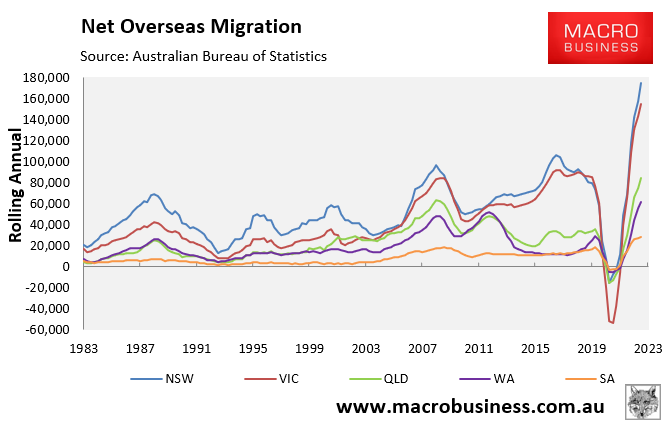
In March 2023, Perrottet lost office to Labor’s Chris Minns.
Now in opposition, Perrottet has admitted that running a high immigration policy is a “ponzi scheme” and “lazy economics”, and is unfair on state governments.
Perrottet stated at a Property Council of Australia event that the state government’s ambitious goal of constructing 75,000 homes per year wouldn’t be sufficient to address the housing crisis because high migration rates would overwhelm such homes.
“There’s not enough homes being constructed for people who aren’t even here yet, let alone for our own Australians”, he said.
Perrottet said rapid population growth was a “lazy” means for the Commonwealth to balance its books and said that states need more assistance to build additional homes.
“The advantage of immigration is that it drives up revenue receipts or income tax, and it drives economic growth, but ultimately, it’s lazy economics, simply having immigration as a Ponzi scheme”, he said.
“I believe the federal government should be providing more infrastructure investment to the states”.
“I’m very concerned that my children will never buy their own place in Sydney”, he said.
Dominic Perrottet is right to be concerned.
Sydney’s rental affordability is abysmal:
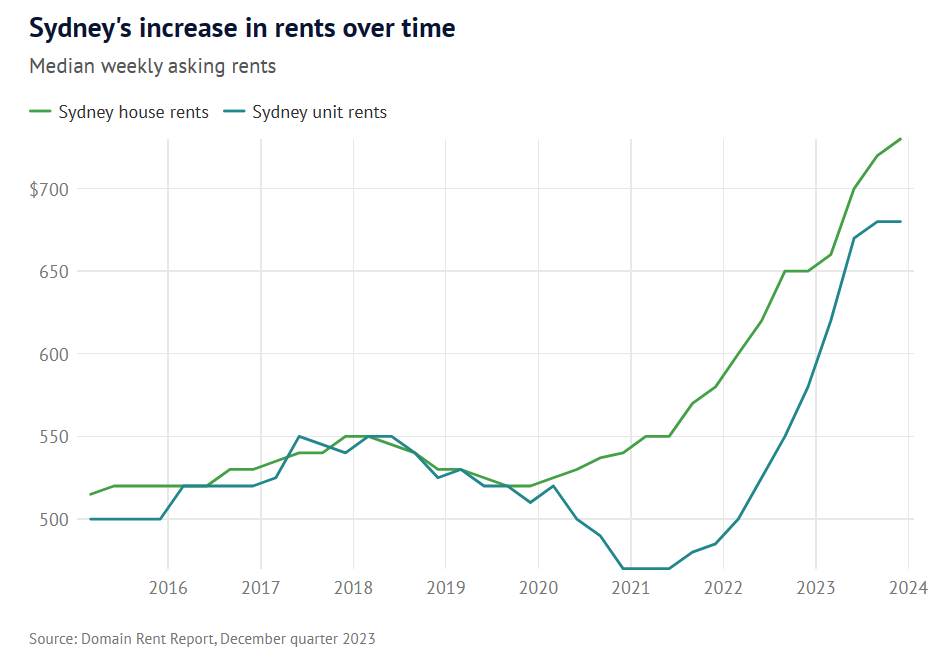
The cost of buying and paying off a home in Sydney is also extortionate, with Sydney’s median house price hitting a record high $1,595,310 at the end of 2023:
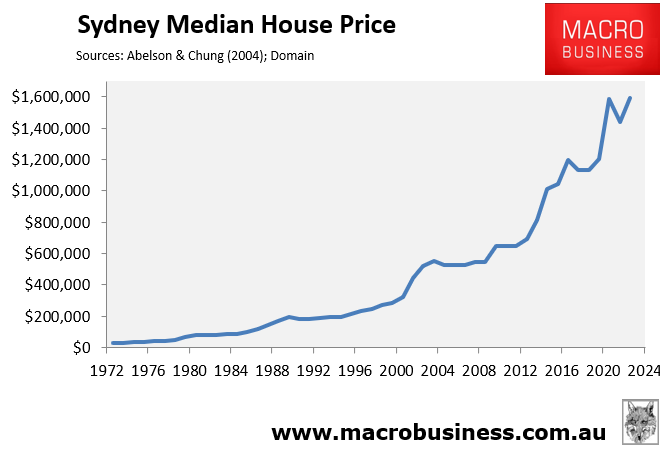
The average loan size in NSW is also the highest in the nation at nearly $800,000:
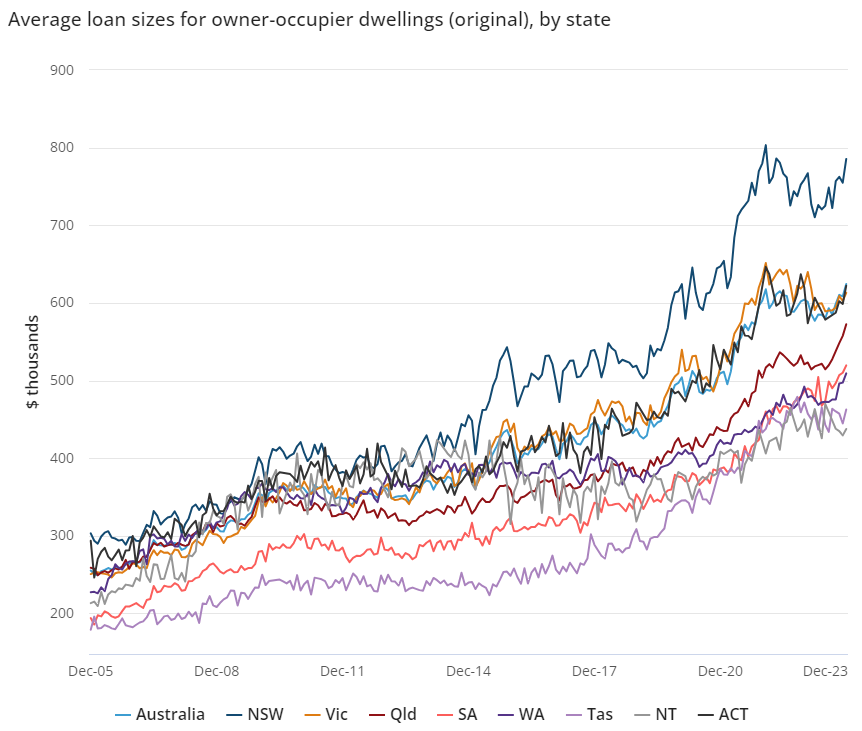
Source: ABS
Independent economist Tarric Brooker posted analysis on Twitter (X) recently showing what proportion of a mortgage on a median-priced Sydney house someone earning $200,000 could afford, adjusted for inflation:
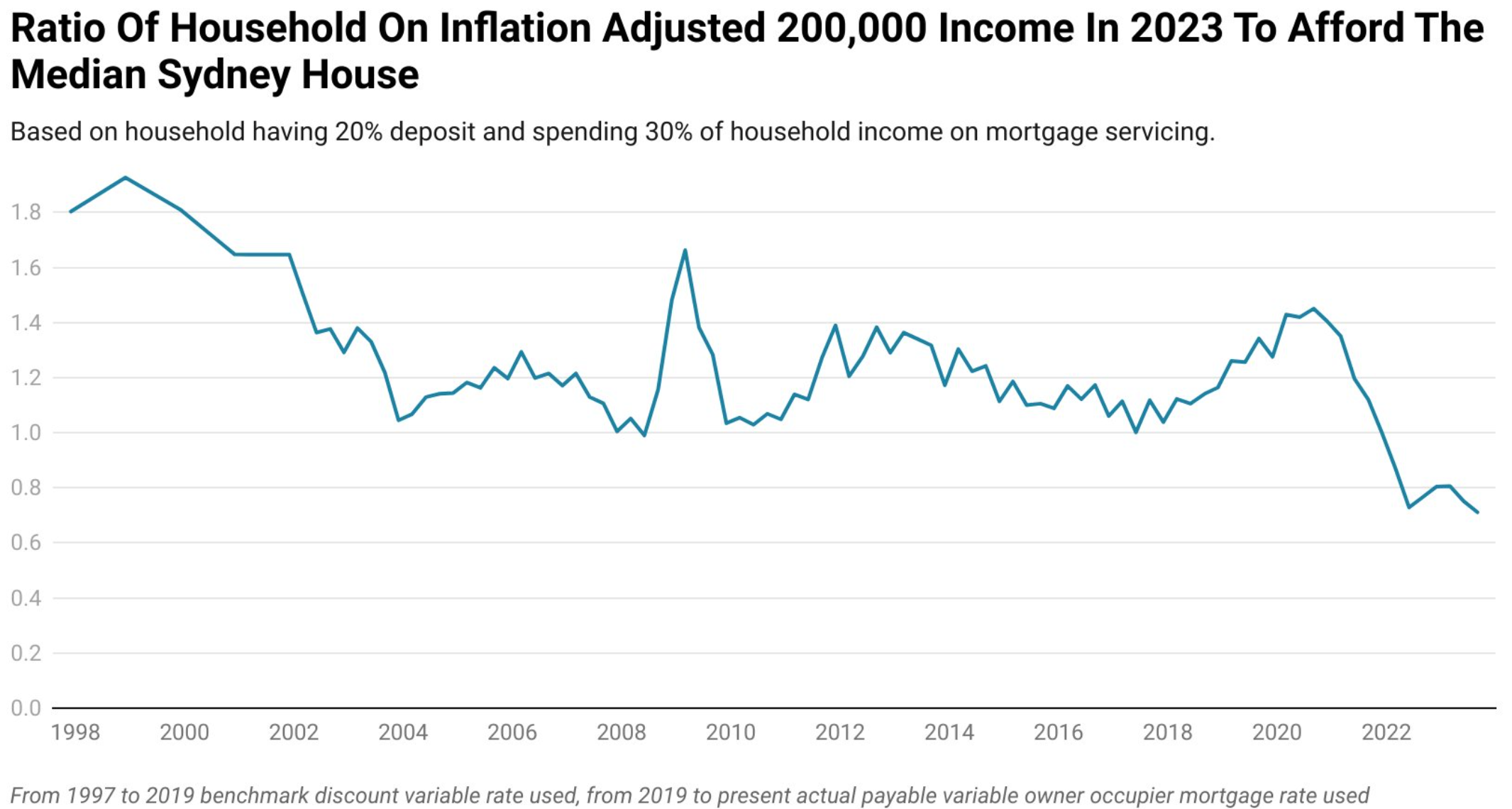
Source: Tarric Brooker
“In 1998, this hypothetical household could afford 1.93 median house mortgages”, noted Brooker. “In 2024, they can’t even comfortably afford the median”.
NSW’s population surged by 174,200 in 2022-23, driven entirely by net overseas migration, against a net increase in dwellings of only 44,500.
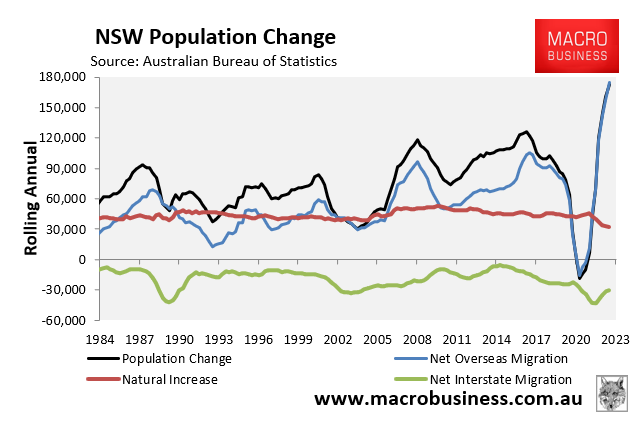
In the decade to June 2023, NSW added 935,315 people with 791,944 or 85% of this growth coming from net overseas migration. Most of this growth obviously landed in Sydney:
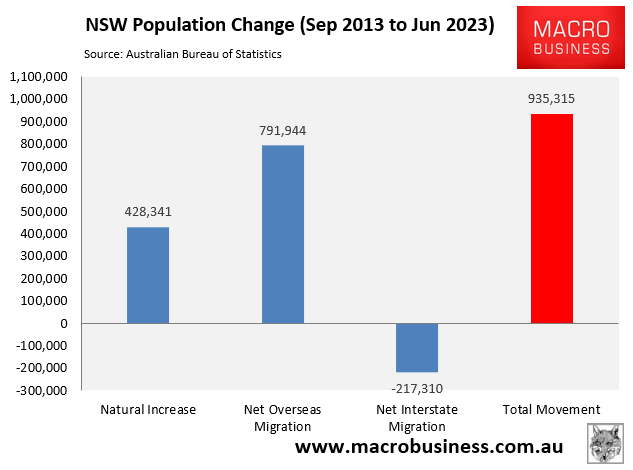
Sydney’s population is also projected to grow to around nine million people by the 2060’s on the back of permanently high net overseas migration.
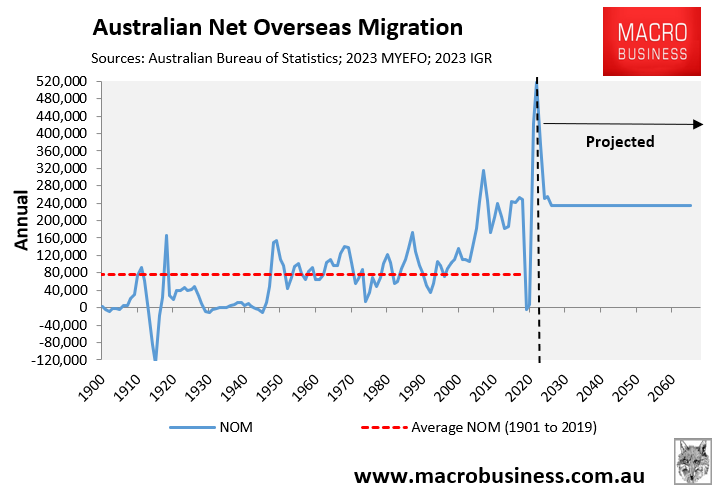
If Sydney’s population is allowed to continue growing like a science experiment, the city faces a future where only the wealthier residents living primarily on the eastern side of Sydney will be able to afford a house with good amenity.
The working class and migrants will either be stuffed like battery chooks into expensive high-rise apartments or forced to live on postage-stamped sized lots miles from adequate services and infrastructure. This is economic apartheid and class warfare writ large.

Anyone with half a brain can see that the primary solution to Sydney’s (and Australia’s) housing shortage is to limit immigration to a level below the capacity to provide high-quality housing and infrastructure.
Otherwise, the housing crisis will be intractable.

